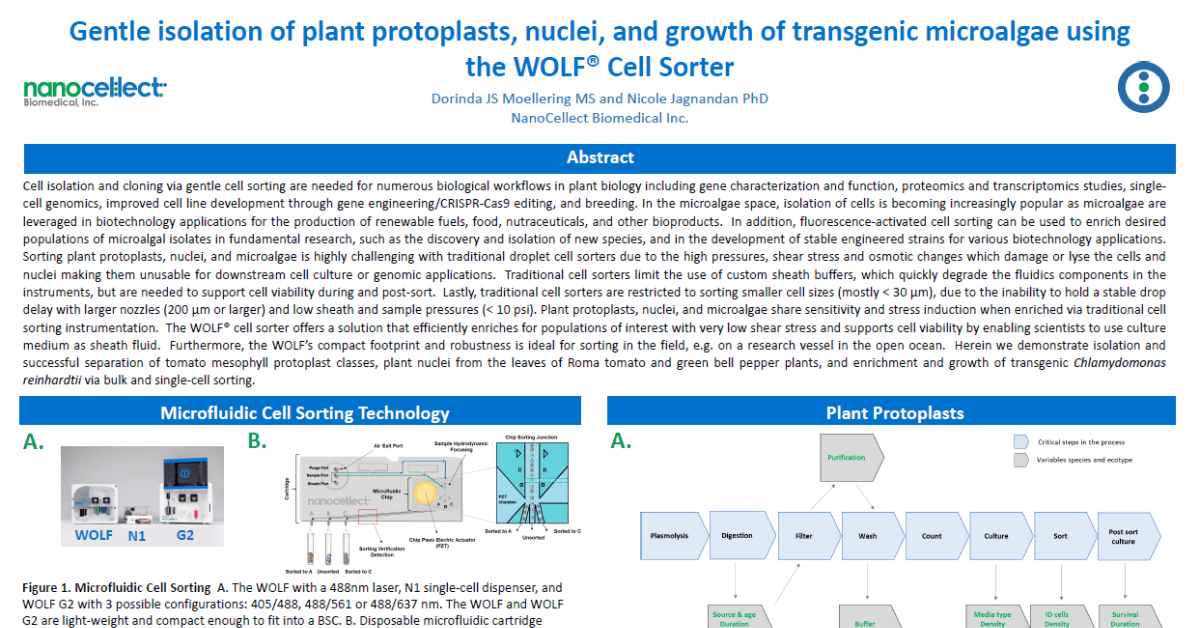
Cell isolation and cloning via gentle cell sorting are needed for numerous biological workflows in plant biology including gene characterization and function, proteomics and transcriptomics studies, single cell genomics, improved cell line development through gene engineering/CRISPR Cas 9 editing, and breeding. In the microalgae space, isolation of cells is becoming increasingly popular as microalgae are leveraged in biotechnology applications for the production of renewable fuels, food, nutraceuticals, and other bioproducts In addition, fluorescence activated cell sorting can be used to enrich desired populations of microalgal isolates in fundamental research, such as the discovery and isolation of new species, and in the development of stable engineered strains for various biotechnology applications. Sorting plant protoplasts, nuclei, and microalgae is highly challenging with traditional droplet cell sorters due to the high pressures, shear stress and osmotic changes which damage or lyse the cells and nuclei making them unusable for downstream cell culture or genomic applications. Traditional cell sorters limit the use of custom sheath buffers, which quickly degrade the fluidics components in the instruments, but are needed to support cell viability during and post sort. Lastly, traditional cell sorters are restricted to sorting smaller cell sizes (mostly 30 µm), due to the inability to hold a stable drop delay with larger nozzles 200 µm or larger) and low sheath and sample pressures 10 psi). Plant protoplasts, nuclei, and microalgae share sensitivity and stress induction when enriched via traditional cell sorting instrumentation. The WOLF® cell sorter offers a solution that efficiently enriches for populations of interest with very low shear stress and supports cell viability by enabling scientists to use culture medium as sheath fluid. Furthermore, the WOLF’s compact footprint and robustness is ideal for sorting in the field, eg on a research vessel in the open ocean Herein we demonstrate isolation and successful separation of tomato mesophyll protoplast classes, plant nuclei from the leaves of Roma tomato and green bell pepper plants, and enrichment and growth of transgenic Chlamydomonas reinhardtii via bulk and single cell sorting.
PST – 09





